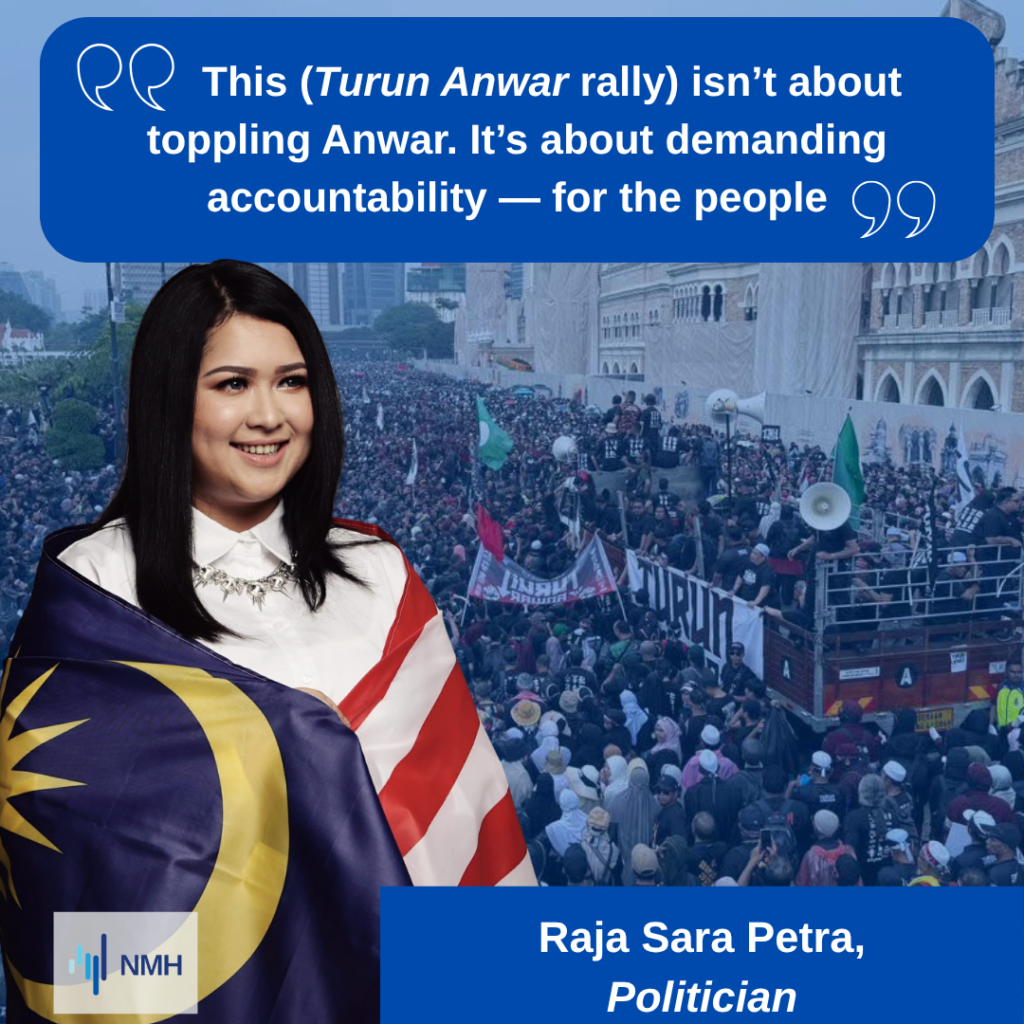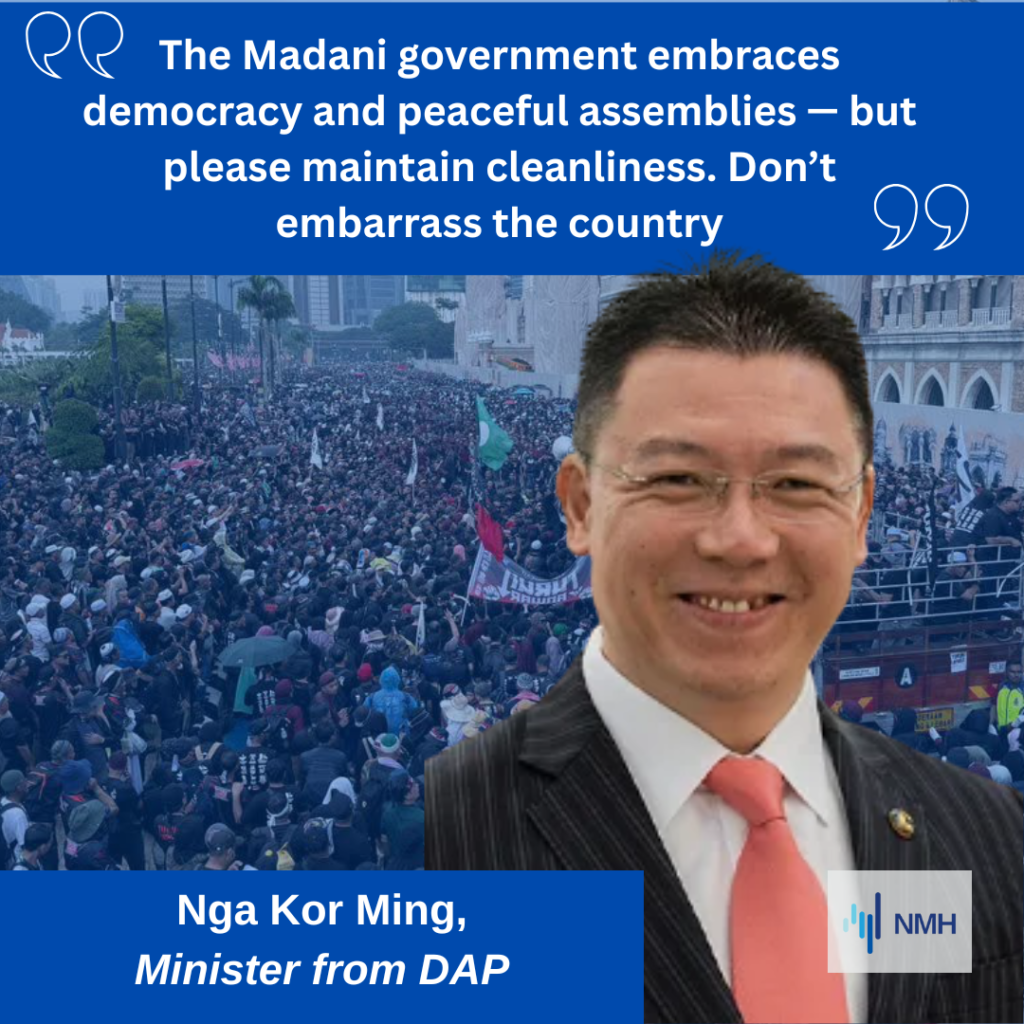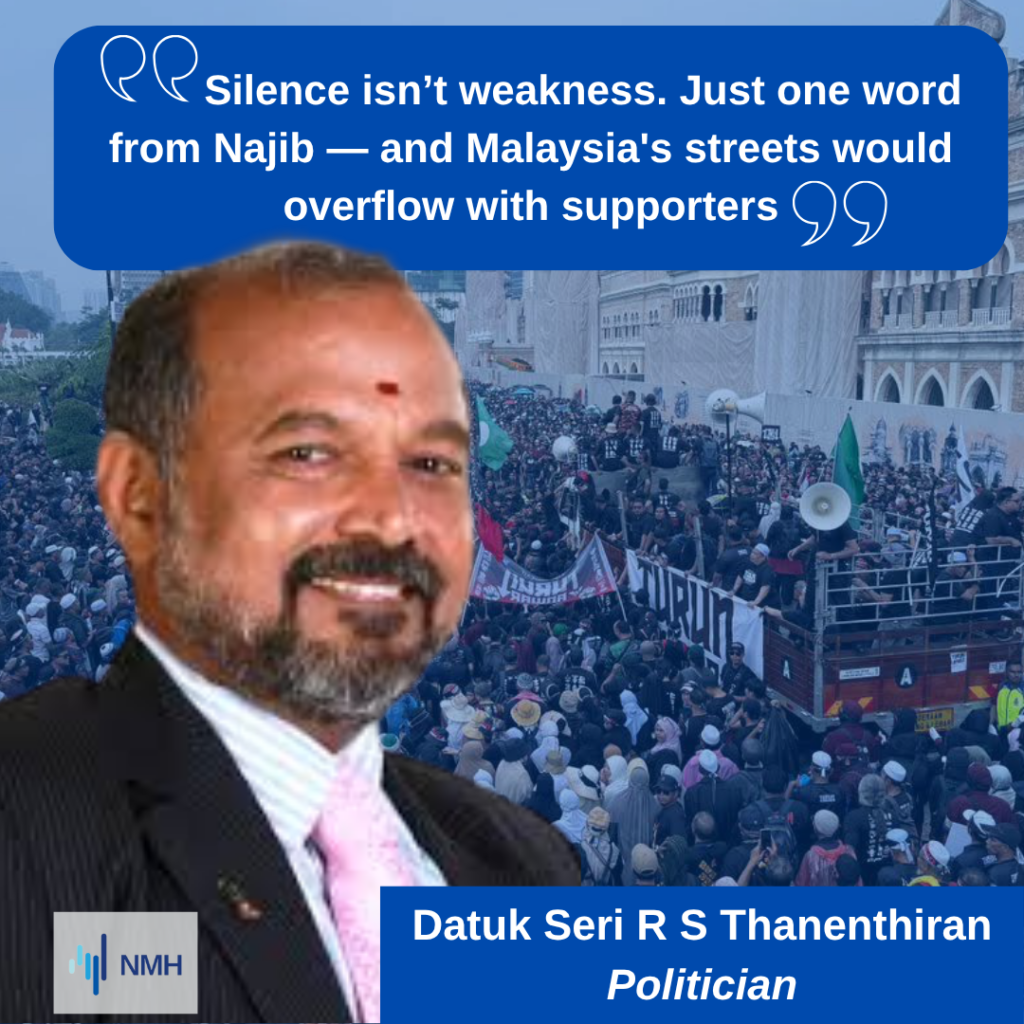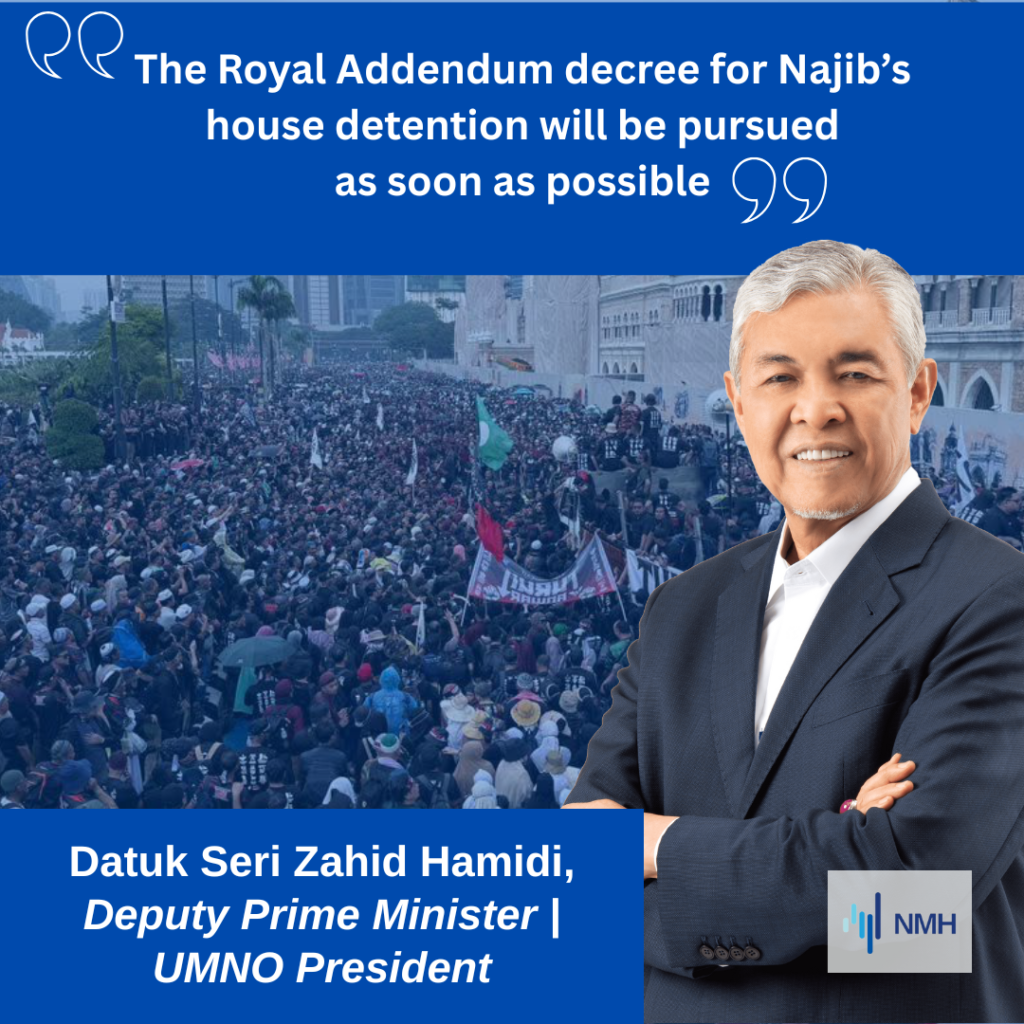As street demonstrations go, Saturday’s ‘Turun Anwar’ (Remove Anwar) rally may not have the numbers as the country’s ICERD protest in 2018, or the street demos in Bangkok, Jakarta or Manila. But whether it was 100 people in various shades and sizes, or half a million who braved the heat, haze and later, rain, like it or not, it should be a watershed moment for the Pakatan Harapan (PH) folks, especially for their leader, the Prime Minister of Malaysia, Anwar Ibrahim.
Turun Anwar —The Protest That Shouldn’t Be Dismissed
The street protest held last Saturday under the banner of Turun Anwar was not about toppling a legally elected Prime Minister through mob rule. Malaysians are well aware that a Prime Minister can only be removed constitutionally—either through a successful vote of no confidence in Parliament (which is currently in session) or via a Royal decree in the interest of national stability. Both are mechanisms rooted in law, and both have precedent in Malaysia’s turbulent political history.
Yet, this demonstration—however small or symbolic—was never just about numbers. It was a clear and deliberate message: Pakatan Harapan, especially Prime Minister Anwar Ibrahim, is fast losing the trust of the people, even those who once stood by him.
What The Protest Was Really About
As Raja Sara Petra succinctly argued in her Facebook post, the protest was about accountability. It was a culmination of frustration over the rising cost of living, tone-deaf economic policies, and an increasing sense that this government is out of touch with the rakyat. The protesters weren’t trying to burn down the institutions of democracy—they were demanding that those institutions begin to work for the people again.

And Then There’s Mahathir…
Of course, no Malaysian protest is complete without controversy. And this time, that came in the form of Tun Dr Mahathir Mohamad.
The presence of the nonagenarian ex-premier triggered mixed reactions, even among those sympathetic to the protest. Yes, Mahathir still commands respect in some quarters, but let’s not forget—his two stints as Prime Minister left behind a legacy of racial tension, entrenched cronyism, and shattered political promises. As pointed out in a widely-shared post, Mahathir’s re-emergence only taints what could have been a purer protest movement driven by the people, not personalities.
DAP’s Misstep: The Trash Talk
In what seems like a comically predictable DAP move, Nga Kor Ming’s biggest takeaway from the rally was… litter. The Minister chose to focus on trash left by the demonstrators, lamenting in Sinar Harian that the protesters had “thrown rubbish everywhere.”

It’s hard to imagine a more tone-deaf response. When people are taking to the streets to demand change, reducing their actions to a cleanliness issue is not only petty—it reeks of arrogance. And for DAP, which has long struggled with its public image among the Malay majority, this kind of rhetoric only deepens the divide.
Ironically, a PAS member was seen cleaning up after the protest—a moment that resonated more powerfully than any ministerial statement.

Najib’s Supporters: A Quiet Strength
Datuk Seri Thanenthiran, president of the Malaysia Makkal Sakti Party and a staunch supporter of former Prime Minister, Datuk Seri Najib Razak, summed it up best: Najib’s silence is not a sign of weakness. In fact, it is a symbol of patience, dignity, and strategic wisdom.
Najib has long maintained that his fight for justice should take place in the courtroom, not on the streets. Yet, Thanenthiran noted that the government’s handling of the Royal Decree on Najib’s proposed house arrest has been nothing short of disgraceful. He didn’t attend the rally, but like many others, he supported its message.

There is a belief among Najib’s supporters that had he even hinted at mobilizing his base, the Turun Anwar rally could have eclipsed ICERD, Bersih, and every other protest movement in Malaysia’s modern political history.
The Elephant In The Room: The Economy
From a communications standpoint, the government is floundering. Joshua Phua, a communications consultant, pointed out that the rising cost of living, coupled with contradictory messaging around subsidies and economic assistance, has exposed a gaping disconnect between Anwar’s administration and the rakyat.

Announcements like the SARA 100 aid and fuel subsidy reforms are not landing well. They appear more like knee-jerk reactions than cohesive policy. The rakyat’s suffering is real, and the government seems clueless.
Phua also took aim at DAP’s elitism, warning that their arrogance is sowing dangerous seeds—pushing the Malays toward unity, not out of strength, but desperation. And if there’s one thing history teaches us, it’s that a cornered majority can be a powerful, unpredictable force.
UMNO’s Silence Speaks Volumes
One interesting omission in the Turun Anwar post-mortem is the silence of UMNO. No statements condemning the rally. No public support either. Just quiet observation.
And why wouldn’t they stay quiet? If Anwar falls and Parliament is not dissolved, the most likely successor would be Deputy Prime Minister and UMNO President, Datuk Seri Ahmad Zahid Hamidi. For many of Anwar supporters, that would be a nightmare scenario. For Zahid, it would be vindication.

Zahid, to his credit, seized the opportunity to give a strong assurance to Najib and UMNO supporters that the Royal Addendum on house detention will be implemented as soon as possible — a move that not only calms the base, but reasserts his political relevance within the Unity Government.
A Moment of Reckoning
The Turun Anwar rally may not bring the government down, but it delivered a message loud and clear: the rakyat are watching, they are suffering, and they are no longer afraid to speak up. PH may have been the reformist darling once—but power has clearly eroded their humility.
For Anwar and his coalition, this should be a ‘serves you right’ moment. A time for reflection. A warning shot before the next general election. Or worse, before the rakyat decides that street power is the only voice left that matters. – NMH
Datin Hasnah is the co-founder and CEO of New Malaysia Herald based in Kuala Lumpur, Malaysia.
With an extensive background in mass communication and journalism, she works on building up New Malaysia Herald and it’s partner sites. A tireless and passionate evangalist, she champions autism studies and support groups.
Datin Hasnah is also the Editor in Chief of New Malaysia Herald.

Facebook Comments